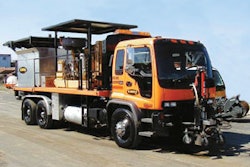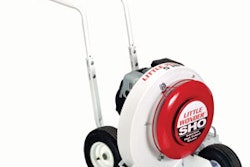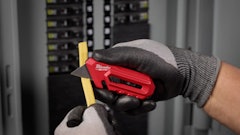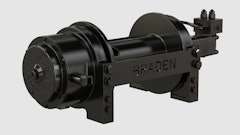With an improving economy and an expanded labor pool, rental store owners are once again finding themselves with the luxury of choosing between several job applicants. Some have added a new tool -- background checks -- to ensure they get the best employee available.
Before now, most rental store owners relied on their instincts when making the final hiring selection. But as background checks become standard in other industries, they are becoming a necessity for rental stores as well.
“If the businesses around you are doing background checks and you are not, what kind of applicants do you think you’re getting?” asks Richard Seldon, president of Manhattan--based Sterling Testing Systems, which provides background checks for employers nationwide.
Hiring decisions
In fact, problems with new employees might be on the rise.
“I’ve probably had a dozen rental stores tell me in the last eight to nine months that they’ve caught their employees taking funds,” says Leon Kothmann, executive director of the Texas Rental Association and a field representative for the American Rental Association.
There’s little question that rental store owners have endured both feast and famine when it comes to job applicants.
“The hiring process has been a roller-coaster ride with the changes in the economy over the last several years,” says Fred Dupy, who owns three rental stores -- A to Z Rental Ltd., American Rental Service and American Party Rental in the Austin, TX, area. “For awhile you couldn’t hire anybody at any price because everyone was working. Now we are inundated with applicants.”
Dupy, who has 35 employees working at four locations, has been doing drug testing for more than 10 years. “That test alone can almost tell you all you need to know,” he says.
Last fall, however, he added other background checks as part of his screening process. “We need to know these kinds of things, especially about our drivers and for our people who are out in the public,” he says.
Thanks to computers and competition, background checks are both inexpensive and fast. Most checks cost between $5 and $20. A comprehensive battery of background checks, including driving records, criminal background and credit check, can cost less than $100. The results usually come back in a couple of days.
“They are worth the investment,” Kothmann says. “Spend a little money up front and find out all you can about that individual.”
Common checks
Following are some of the most commonly used background checks:
Driving Record—Department of Motor Vehicle records can provide information about license suspensions, revocations, accidents, traffic violations, driving-under-the-influence convictions and vehicle-related incidents. These checks are essential for anyone who will be driving a company vehicle. “The last thing you want to do is to put someone behind the wheel who does not have a valid driver’s license,” says Sheldon. “That’s a recipe for losing your company.”
Social Security Trace—A Social Security trace can provide information about each of the addresses at which the applicant has lived. This information can be used to assess the accuracy of the information provided by the applicant on his or her application. It also can be used to conduct a complete criminal background check.
Credit Check—Knowing whether someone is deep in debt or behind in their financial obligations can provide critical information about a person’s character, especially if they will be handling money, will be given keys to the facility or will have a supervisory position. “One of the best predictors of an applicant’s future behavior is his or her failure to pay their credit cards or mortgage,” Seldon says. “These people often have issues and will do desperate things.”
Employment References—Prior employers might be unwilling to go on record about an applicant’s performance for fear of being sued, but they can verify basic information, such as duration of employment and job description. This can be used to verify the applicant’s truthfulness. Seldon says applicants provide false information more than 40 percent of the time.Education Verification—Many applicants also inflate their educational credentials. Double--checking this information can determine whether an applicant is exaggerating or lying.
Criminal Records—Checking county, state and federal court records can protect a company from a negligent hiring lawsuit, can reduce turnover and can minimize the potential for theft.
Workers Compensation Claims—In some states, workers compensation claims are public information and can be used to identify employees who might be abusing the system. “You don’t want to hire someone, have them file a claim for a back injury and then discover that they have had five other back claims with prior employers,” Kothmann says.
Not for everybody
Not all rental store owners think background checks are necessary. This is especially true in small communities in which the owner has one facility and is on--site, at least sporadically, throughout the day.
“I employ nine guys and every one of them was hired because they knew somebody else who worked here,” says Roger Vajgrt, owner of Home Rental Center and Sales Co., in Marshalltown, IA. “I’ve never had to advertise for workers and I’ve never had to deal with applicants coming in cold. If I need somebody, I let the guys at work know and they put the word out.”
Dupy says the need for background checks increases with the number of locations a store owner has. “It depends on whether you are looking into the eyes of your employees every day,” Dupy says.
While he’s just started using background checks, Dupy says he fully understands their importance. “For the low cost involved, saving me from one bad applicant will have paid for all the background checks I do,” he says. “It’s worth the peace of mind.”
Seldon agrees. “Employers want information,” he says. “They don’t want turnover and they don’t want a negligent hiring lawsuit. The money they pay for checking pales in comparison to the legal fees they could incur.”


















